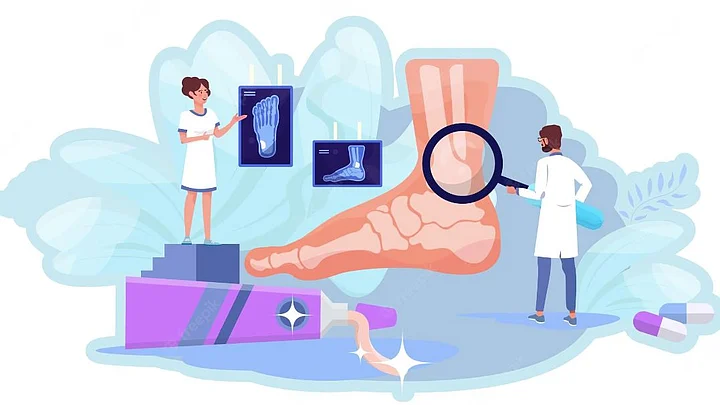What is the first image that comes to your mind when someone mentions arthritis? Is it an older person struggling to walk or get up from bed, or their hands shivering as they try to hold a cup of tea?
To be honest, when someone mentions it to me, the first image that pops into my head is that of Raju’s father in 3 Idiots. Granted, he suffered from paralysis and not arthritis, but isn’t that the most accurate description of the disease?
As it turns out, it is not. Arthritis is fairly common in young people and children. A study by the United States Centers for Disease Control and Prevention, conducted between 2013-15, showed that 7.1 percent people, out of the total population aged 18-44, suffered from some form of arthritis.
On World Arthritis Day, FIT spoke to experts to find out why and how younger people can suffer from arthritis, and whether it can impact other aspects of their life.
What Is Arthritis?
Arthritis is a disease that affects the joints in our body. It can occur either due to inflammation or degeneration of the body’s mobile joints, or if the cartilage tissue (that prevents friction between the bones) tears.
It can also occur due to trauma from an injury or a fracture, says Dr Ashish Singh, a consultant orthopaedic surgeon and the director of Patna’s Anup Institute of Orthopaedics and Rehabilitation.
There are many types of arthritis, but the most common ones are:
Osteoarthritis
Degenerative arthritis
Rheumatoid arthritis
Juvenile arthritis (affecting children)
Ankylosing spondylitis
What Are the Symptoms?
According to Dr Vineesh Mathur, the director of the Division of Spine at Gurugram’s Medanta Hospital, if you have any of these symptoms for more than three weeks, without any history of a recent injury, you need to consult a doctor:
Pain, swelling, and redness in or around joint areas
Pain or trouble while moving a joint, for instance, your knee or shoulder
Morning stiffness that lasts more than 30 minutes
Persistent backache at a young age
Trouble climbing or descending stairs
Why Does One Get Arthritis?
Dr Mathur explains that arthritis can happen due to old age, because of an injury, or can be caused by getting a surgery done near your brain area. But, he adds, there’s been an increase in auto-immune and infectious disease off-late, which is why more and more younger people are getting diagnosed with arthritis.
Dr Singh agrees with him. But he also says that our changing lifestyles have made our bodies more prone to arthritis.
He explains that a sedentary lifestyle, no proper schedule for the day or even for your sleep, poor dietary habits, and lack of physical exercise can lead to arthritis at a younger age.
“You’ve got to have some activity going on. Don’t sit continuously for long hours or spend your entire day in front of a screen. Don’t have a stuck-up sleep schedule. You can also get arthritis in the neck because of all this.”Dr Ashish Singh
If there’s a history of arthritis or spondylitis in one’s family, that also makes them more prone to arthritis, especially at a younger age.
Women More Prone to Arthritis
According to various studies, women are more prone to arthritis than men, especially rheumatoid arthritis and osteoarthritis, since their bones become weaker and brittle with age. To blame here are:
Hormonal imbalance (especially after menopause)
Polycystic ovary syndrome (PCOS)
Improper diet and sleep schedule
Lack of exercise
Can Arthritis Impact Your Life in Other Ways?
With the advent of arthritis, there’s usually a limitation in the movement of the patient, even in the early stages, due to constant pain.
Dr Singh says that many a time, this can lead to induced osteopenia and weight gain, since your physical activities take a backseat. This might lead to problems like diabetes, heart disease, and can even impact the patient’s mental health.
Dr Mathur adds that inflammatory conditions in the body can also lead to diseases of the liver, skin, and heart, though these are not as common in youngsters. In some cases where the arthritis is severe, it can even cause deformities of the joint and terrible chronic pain.
How Is Arthritis Treated?
The very first step, before any sort of intervention, is correct identification, says Dr Mathur. Though arthritis is not curable, the pain and symptoms are treatable, especially if diagnosed at the early stages.
Dr Mathur adds that all forms of treatment for arthritis are long-term, and the regular follow-ups “require considerable effort on the part of the patient.” While medication and lifestyle changes are the first natural step towards treatment, some patients might also require surgery.
There are two types of surgeries that patients might have to undergo:
Joint preservation surgery where the natural joints are preserved to avoid replacement
Joint replacement surgery which is carried out in cases of severe arthritis
Since arthritis is a long-term disease, it might even be the case that youngsters who get a surgery done have to get it revised after 10-15 years.
Dr Singh explains that with the latest developments in pharma and technology, there are several means to treat arthritis:
Immuno-moderator (or disease-modifying) genetically engineered drugs
Robotic arm-assisted surgery for knee and hip replacements (that can last for 30-35 years)
Platelet-rich plasma (PRP) that can be used for the regeneration of cartilage
Synthetic lubricants for joints (to prevent friction between bones)
Stem cells treatment
However, all of these are expensive treatment options that are not accessible to everyone. One injection for the stem cell treatment alone can cost over Rs 1.5 lakh.
(At The Quint, we question everything. Play an active role in shaping our journalism by becoming a member today.)
